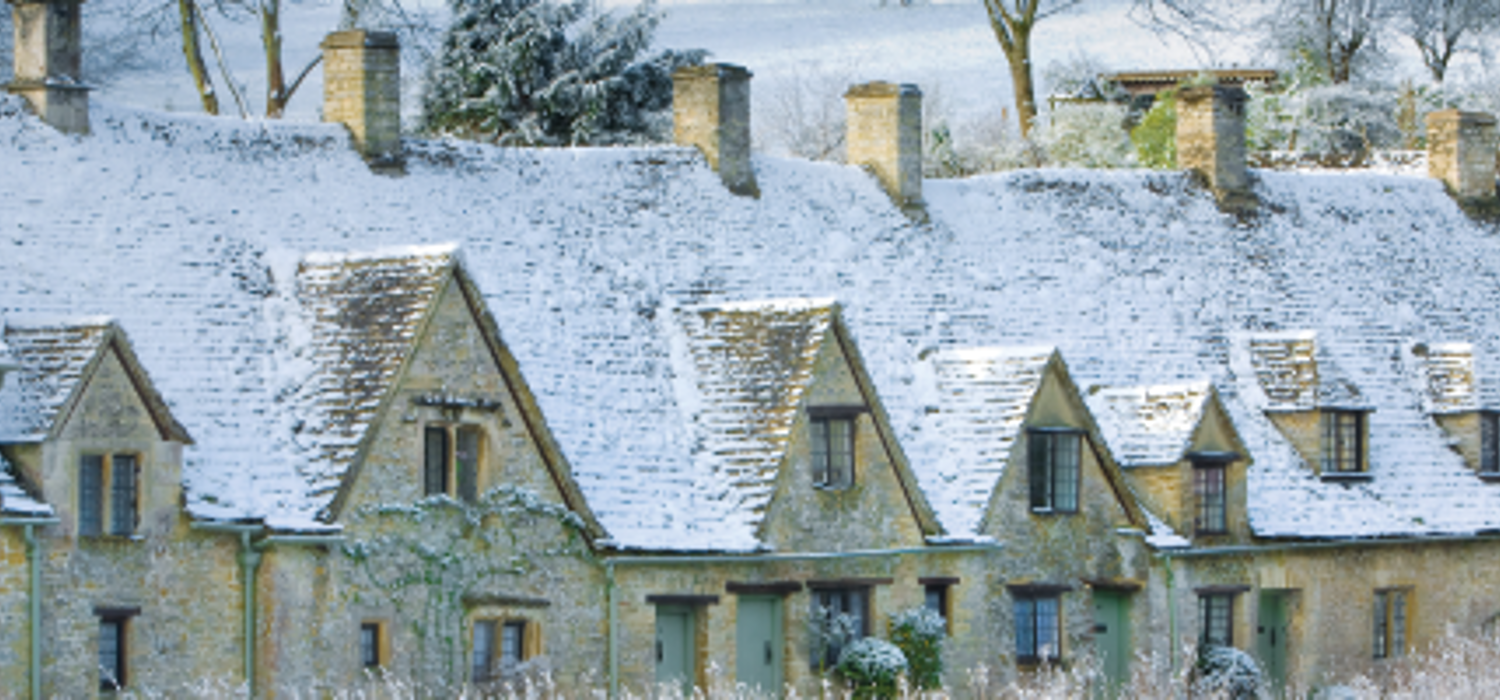5 Tips To Prepare Your Property For Winter
Posted in Household on 13 December 2018

As we start to head deeper in to the winter season, many homeowners and landlords forget about the obligations they have for looking after their properties during this cold, wet and windy time of year.
Many things could potentially go wrong with your property such as burst frozen pipes, flooding, loss of hot water, loss of heating, leaky roof and other unexpected surprises. InsuraHome Home Insurance have put together their 5 easy ways to prepare your property for winter hazards.

(1) Gutters, Drain and Roofs
It is typically recommended that your gutters need to be cleaned out at least once every 6 months and one of the best times of the year to do this is at the beginning of winter as part of your winter home checks. During the winter season, due to the build-up of leaves, debris and factoring in the lower temperatures, there is an increased risk to your home of clogging and freezing.
Blocked gutters due to unremoved debris or the contents freezing can block the drainage system which then leads to cracking as it expands. It can also cause the gutter to rust which will make them leaky and essentially ineffective. Another important thing to remember is that snow and ice can linger for weeks due to the low temperatures which can cause roof damage as the excess snow, ice and debris has nowhere to filter to. So, staying on top of your gutters and keeping them clean is imperative to your home and your wallet. It may even save you a home insurance claim!

(2) Winter Frozen Pipes
Cold temperatures can cause pipes to freeze which is a huge problem as it prevents the flow of water around your home, but worse, pipes can eventually burst causing damage and then potential flooding when they thaw. So, how do you prevent this from happening?
If you or your tenants are going to be out of the property for a short while, an idea is to keep the heat on a constant low temperature during that time as the heat prevents the pipes from freezing.
Another tip, which some people use which is still low cost is to allow all the taps in the property to drip ever so slightly. This allows water to keep flowing which also relieves the pressure within the system, and pressure within the system is what causes a pipe to burst if part of the pipe freezes. Allowing the tap to be ‘open’ will prevent this pressure from occurring and thus will keep the pipe from bursting. Finally, seal up any cracks or holes that exist near pipes and surround with insulation. This should keep the cold air out and the warm air in.

(3) Boiler Service
Throughout the summer months of the year your boiler works hard in providing you with hot water. As winter approaches, if you have a combi-boiler, it will now also be providing your house with heat, so it makes sense to have it checked over before it takes on this additional work.
By getting your boiler serviced before the temperature drops, it will allow plenty of time to fix or highlight any potential problems, ensuring it performs at its best and provides you with peace of mind.
There are a few things that can be done at home to minimise any potential problems for when you do need the boiler most, such as switching the boiler on for a few hours per week in the run up to the cold weather. This acts as a warm-up, getting it ready for full use a little later down the line, and when you do wake up to a cold morning, instead of turning the heating on full blast and then turning it off shortly after, set a timer and allow it to run at a lower temperature for a longer period of time.

(4) Heating
Whilst having your boiler checked does help in keeping your house warm and dry throughout winter, radiators need to be checked too. A cost-effective way to ensure your radiators perform to their best ability is to bleed them before that first use as it would have been a long time since their last consistent use.
Not using radiators for long periods can result in air becoming trapped which leads to a frustrating problem of the radiator getting hot at the bottom whilst remaining cold at the top. As a result, the property won’t get as warm as you need it to be, causing you or your tenants to turn up the thermostat and creating higher energy bills. You can purchase a ‘key’ to do this which will fit almost all radiators from DIY shops saving the cost of a call out for a plumber. If you’re not sure how to bleed a radiator, it is quick and easy – there are several videos on Youtube.

(5) Home Insurance
Double check your home insurance policy. Whether you are a landlord, the property is your second home or it’s been unoccupied for a long-time, these checks need to be done regardless. As a landlord, most of these will in-fact be a legal requirement to keep the property in a safe, liveable condition. It is highly unlikely that most home insurers will cover you in the instance any of the faults above occur whilst the property has been vacant for a long period or you haven’t taken the necessary maintenance or risk precautions to prevent these unforeseen damages. Please always check your home insurance policy wording to find out what is covered and what is not.
It is also worthwhile discovering what optional extras your home insurer provides such as accidental damage protection. This will provide cover from sudden and unintentional physical damage that occurs unexpectedly and may provide you with additional peace of mind.
Home Insurance doesn’t need to be complicated with InsuraHome. InsuraHome Home Insurance makes home insurance simple for landlords, those with unoccupied properties or a second home in the UK or selected European destinations.
For more information on InsuraHome Home Insurance and what we do or to get a Home Insurance quote, click here.
Other Related News Articles...
- How to keep your house cool this summer


